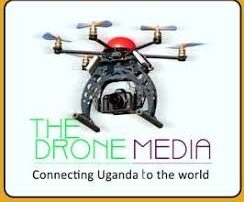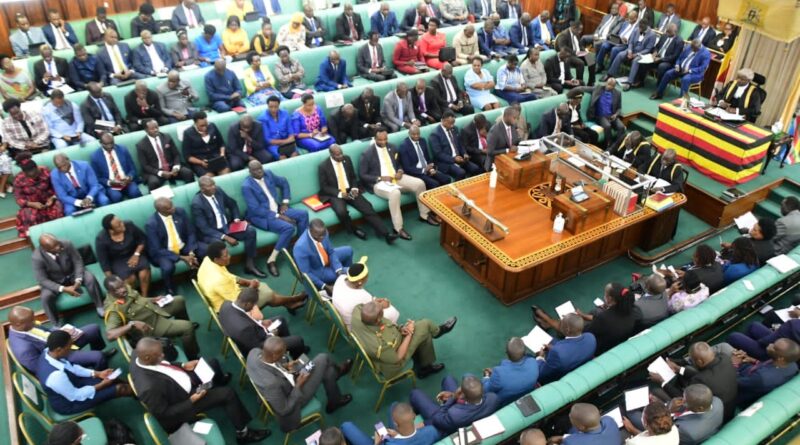Parliament approves Ugx.49.9 trillion budget
By Drone Staff
Parliament has approved Ugx.49.9 trillion draft National Budget for the financial year 2023/2024.
The budget was approved after adoption and debate of the National budget frame work paper report presented to the House, by the Parliamentary committee on budget.
Government tabled the National budget framework paper for the financial year
2023/2024 on Friday December 23, 2022.
The Public Finance Management Act requires parliament to approve the Budget Framework Paper by 1st February.
Out of the proposed Ugx.49.9trillion National Budget, Ugx.28.8trillion is expected to come
from domestic revenue collections and the remaining Ugx.21.1trillion is expected to come from external and internal borrowing.
Whereas the 2023/2024 National Budget has increased in size by Ugx.1.8trillion from
Ugx.48.1trillion for FY 2022/2023, the funds available for discretionary expenditures
(which can be allocated to various sectors for service delivery) have reduced by
Ugx.2.5trillion due to increase in the budget for interest and debt payment which has risen to Ugx.19trillion from Ugx.16trillion in 2022/2023.
According to the approved draft 2023/2024 National Budget, capital development (Education and Health), security, works and transport, and the energy sectors will take the lion’s share of the Ugx.49.9trillion 2023/2024 national budget. The Human Capital Development programme which contains social services sectors of Education, Health, Gender, Labour and Social Development, has been tentatively allocated Ugx.9005.6b which is slightly lower than the Ugx.9089.5b it was allocated in the current Financial Year of 2022/2023.
The allocation of Ugx.9 trillion out of the Ugx.49.9trillion National Budget implies that the Human Capital Development programme has continued to take the biggest portion of the National Budget.
The Governance and Security Programme has been allocated the second highest portion of the 2023/2024 National Budget to the tune of Ugx.6.8trillion, which is lower than Ugx.7.2trillion it was allocated in the budget for the 2022/2023 National Budget.
In the third place is the Integrated Transport Infrastructure and Services which covers the works and transport sector has had its budget enhanced from Sh4.3trillion allocated to it in the current Financial Year to Sh4.65trillion in the budget for the next Financial Year.
The manufacturing progamme has had its budget significantly slashed from Ugx.418.9b allocated in the current Financial Year to Ugx.268.4b in the next Financial Year.
The Natural Resources, Environment, Climate Change, Land and water programme has also had its budget cut from Ugx.635.1b it was allocated in 2022/2023 to Ugx.547.3b in the 2023/2024 national budget.
The tourism sector budget has been reduced from Ugx.194.6b it was allocated in 2022/2023 national budget to Ugx.89.3b in the draft 2023/2024 national budget.
The ICT sector under the Digital Transformation Programme has received additional funding in next year’s National Budget from Ugx.124.2b allocated to it in the current Financial Year to Ugx.176.7b in 2023/2024.
The Energy and Mineral Development Sector, which is composed of three separate programmes of Mineral Development, Sustainable Energy Development, and Sustainable Petroleum Development has been allocated a total of Ugx.1.8trillion.
The Private Sector Development Programme which among other components entails funds allocated to government financial institutions like the Uganda Development
Bank to lend to the private sector at low interest rates has been allocated Ugx. 1.79trillion up from Ugx.1.65trillion it was allocated in the current financial year.
Some of the wealth creation funds in the 2023/2024 National Budget include Ugx.740b Fund for exporters, Ugx.1059b for the Parish Development Model, Ugx.872.6b Fund for the poorest sub regions, Ugx.120.7b for SAGE, Ugx.85b for Uganda Development Bank, Ugx.48.7b for Uganda Development Cooperation, Sh100b for Emyooga, and Ugx. 200b for the Small Business Recovery Fund and a Ugx.2.9 trillion World Bank project for women entrepreneurs.
The sub regions which are scheduled to benefit from the Ugx.872.6b affirmative Fund include Karamoja, Teso, Bukedi, Bugisu, Busoga, Acholi, Bunyoro, and West Nile.

